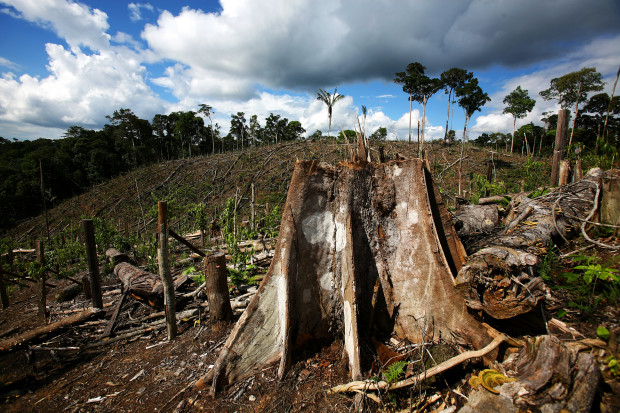The President of Brazil, Dilma Rousseff, announced plans to reduce by up to 43 percent gases which cause the greenhouse effect (GHG) and reduce to zero illegal deforestation of the Amazon by 2030. Rousseff spoke on Sunday to other leaders at the United Nations Conference for a Post 2015 Development Agenda. The resolutions of this conference will be taken to the COP-21 Climate Conference in Paris at the end of the year.

“Our goals are ambitious because we believe that the stability of our growth will come from the fact that it is sustainable,” said Rousseff during her speech at the UN. “Brazil is one of the few developing countries pledging an absolute reduction target for its emissions. We have one of the largest populations and GDPs in the world and our targets are as ambitious or more ambitious than those developed countries,” she added.
According to the Brazilian leader in addition to ending the illegal deforestation and reducing GHG emissions, Brazil’s government also pledged to reforest degraded areas and guarantee that forty-five percent of its energy matrix would come from renewable sources, including twenty-three percent from eolic, biomass or solar sources.
President Rousseff noted that the global average of renewable sources in energy matrix today is only thirteen percent. The President emphasized that the reduction percentages announced this weekend would be applied to gas emission rates and deforestation rates registered in 2005. Since then Brazil has already been able to reduce its deforestation rates and its emission of gases which cause the greenhouse effect.
At a press conference after her speech, Rousseff hinted that with additional, international, resources, Brazil could do much more for the environment. “We are complying to our goals with our own resources. If we had more resources we would reach our goals earlier or could even increase them,” said President Rousseff to journalists.
These goals set by the Brazilian government will now be taken to Paris where world leaders hope to set goals for the next fifteen years. “The Paris Conference is an unique opportunity to construct a common response to the global challenge of climate change,” said Brazil’s President, adding that the country has made significant effort in reducing GHG emissions without compromising its economic development or social inclusion strategies.